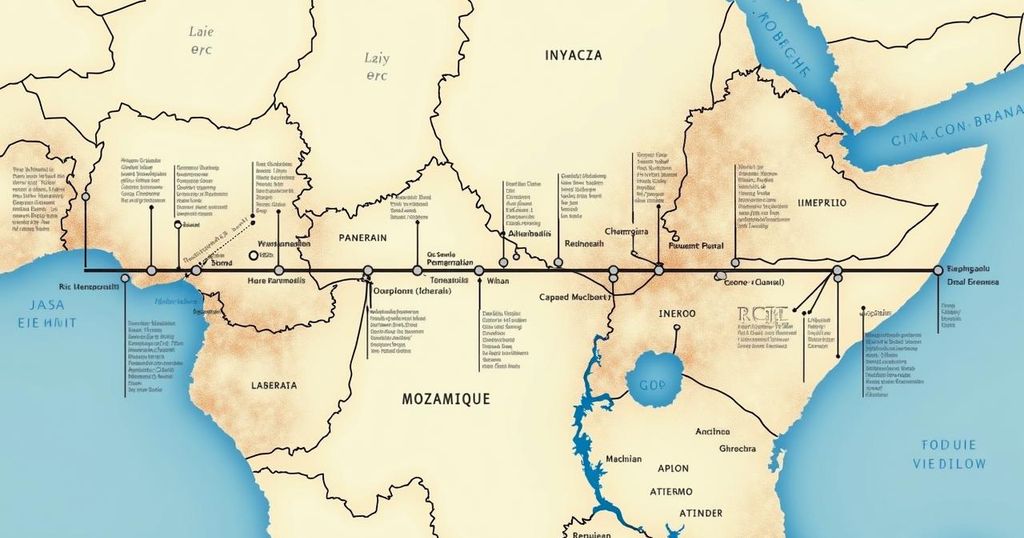Mozambique’s post-colonial history is marked by the New State regime, which intensified colonial rule and economic inequalities. Following the formation of Frelimo in 1962, armed resistance culminated in independence in 1975. However, internal strife led by Renamo posed significant challenges, necessitating a peace agreement in 1992, which reshaped the political landscape of the nation.
In 1926, a coup in Portugal initiated a regime known as the New State (Estado Novo), which, despite consolidating power, exacerbated social inequities in Mozambique. The New State’s administration sought to benefit Portuguese settlers at the expense of the indigenous population, further limiting African economic and mobility rights. As the colonial economy expanded significantly in the 1950s, discontent simmered among the African populace, which paved the way for the emergence of the Mozambique Liberation Front (Frelimo) in 1962, after extensive political consultation among Mozambican exiles. Frelimo, led initially by Eduardo Mondlane and later by Samora Machel following Mondlane’s assassination in 1969, adopted an armed approach against colonial rule, which echoed the broader resistance occurring across Portugal’s African colonies. The insurrection successfully gained momentum, and by 1974, Portugal’s military coup prompted an opportunity for Frelimo to advocate for independence. After declaring independence on June 25, 1975, Frelimo established a one-party state, emphasizing solidarity with other liberation movements, which had significant, albeit detrimental, economic repercussions. The government’s agrarian policies faced criticism for their inefficacy, as they alienated many farmers who had anticipated familial land returns. Although initially successful in providing education and healthcare, these gains were severely undermined by the emergence of the Mozambique National Resistance (Renamo), which waged a campaign of terror against the populace. Despite efforts to cease hostilities, including the Nkomati Accord, a sustained peace agreement was not attained until 1992, marking a convoluted journey toward stabilization and democratization in Mozambique.
The history of Mozambique is deeply intertwined with colonialism, independence movements, and subsequent socio-political challenges. Following the 1926 coup in Portugal, the New State era entrenched colonial exploitation, favoring Portuguese settlers while restricting indigenous advancements. The subsequent emergence of Frelimo in the 1960s marked a pivotal shift, leading to a protracted armed struggle against colonial rule. Independence was declared in 1975, but the internal strife continued as Frelimo struggled to implement effective governance. The socio-political context following independence laid the groundwork for both significant achievements and profound challenges, particularly as insurgencies like Renamo rose to prominence, affecting the country’s stability up until the early 1990s.
The trajectory of Mozambique’s colonial past, independence struggle, and post-independence challenges exemplify the complexities of nation-building in the wake of colonial rule. While Frelimo initially sought to uplift the majority through social policies and international alignments, the ensuing conflict revealed the difficulties of governance and national cohesion. The eventual peace agreement in the 1990s signaled a shift towards a more inclusive political framework, albeit with lasting legacies of conflict and economic hardship that continue to influence Mozambique’s development today.
Original Source: www.britannica.com






